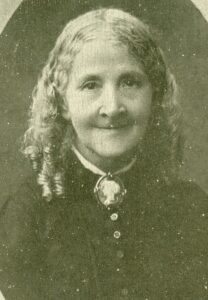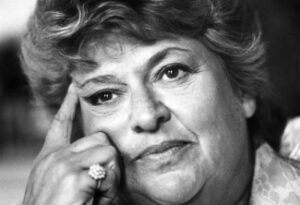

While there is much that we do not know, humans are responsible for what we are or will become. No deity will save us; we must save ourselves.
Reproduced with the permission of the American Humanist Association.
It is forty years since Humanist Manifesto I (1933) appeared. Events since then make that earlier statement seem far too optimistic. Nazism has shown the depths of brutality of which humanity is capable. Other totalitarian regimes have suppressed human rights without ending poverty. Science has sometimes brought evil as well as good. Recent decades have shown that inhuman wars can be made in the name of peace. The beginnings of police states, even in democratic societies, widespread government espionage, and other abuses of power by military, political, and industrial elites, and the continuance of unyielding racism, all present a different and difficult social outlook. In various societies, the demands of women and minority groups for equal rights effectively challenge our generation.
As we approach the twenty-first century, however, an affirmative and hopeful vision is needed. Faith, commensurate with advancing knowledge, is also necessary. In the choice between despair and hope, humanists respond in this Humanist Manifesto II with a positive declaration for times of uncertainty.
As in 1933, humanists still believe that traditional theism, especially faith in the prayer-hearing God, assumed to live and care for persons, to hear and understand their prayers, and to be able to do something about them, is an unproved and outmoded faith. Salvationism, based on mere affirmation, still appears as harmful, diverting people with false hopes of heaven hereafter. Reasonable minds look to other means for survival.
Those who sign Humanist Manifesto II disclaim that they are setting forth a binding credo; their individual views would be stated in widely varying ways. This statement is, however, reaching for vision in a time that needs direction. It is social analysis in an effort at consensus. New statements should be developed to supersede this, but for today it is our conviction that humanism offers an alternative that can serve present-day needs and guide humankind toward the future.
– Paul Kurtz and Edwin H. Wilson (1973)
The next century can be and should be the humanistic century. Dramatic scientific, technological, and ever-accelerating social and political changes crowd our awareness. We have virtually conquered the planet, explored the moon, overcome the natural limits of travel and communication; we stand at the dawn of a new age, ready to move farther into space and perhaps inhabit other planets. Using technology wisely, we can control our environment, conquer poverty, markedly reduce disease, extend our life-span, significantly modify our behavior, alter the course of human evolution and cultural development, unlock vast new powers, and provide humankind with unparalleled opportunity for achieving an abundant and meaningful life.
The future is, however, filled with dangers. In learning to apply the scientific method to nature and human life, we have opened the door to ecological damage, over-population, dehumanizing institutions, totalitarian repression, and nuclear and bio-chemical disaster. Faced with apocalyptic prophesies and doomsday scenarios, many flee in despair from reason and embrace irrational cults and theologies of withdrawal and retreat.
Traditional moral codes and newer irrational cults both fail to meet the pressing needs of today and tomorrow. False “theologies of hope” and messianic ideologies, substituting new dogmas for old, cannot cope with existing world realities. They separate rather than unite peoples.
Humanity, to survive, requires bold and daring measures. We need to extend the uses of scientific method, not renounce them, to fuse reason with compassion in order to build constructive social and moral values. Confronted by many possible futures, we must decide which to pursue. The ultimate goal should be the fulfillment of the potential for growth in each human personality – not for the favored few, but for all of humankind. Only a shared world and global measures will suffice.
A humanist outlook will tap the creativity of each human being and provide the vision and courage for us to work together. This outlook emphasizes the role human beings can play in their own spheres of action. The decades ahead call for dedicated, clear-minded men and women able to marshal the will, intelligence, and cooperative skills for shaping a desirable future. Humanism can provide the purpose and inspiration that so many seek; it can give personal meaning and significance to human life.
Many kinds of humanism exist in the contemporary world. The varieties and emphases of naturalistic humanism include “scientific,” “ethical,” “democratic,” “religious,” and “Marxist” humanism. Free thought, atheism, agnosticism, skepticism, deism, rationalism, ethical culture, and liberal religion all claim to be heir to the humanist tradition. Humanism traces its roots from ancient China, classical Greece and Rome, through the Renaissance and the Enlightenment, to the scientific revolution of the modern world. But views that merely reject theism are not equivalent to humanism. They lack commitment to the positive belief in the possibilities of human progress and to the values central to it. Many within religious groups, believing in the future of humanism, now claim humanist credentials. Humanism is an ethical process through which we all can move, above and beyond the divisive particulars, heroic personalities, dogmatic creeds, and ritual customs of past religions or their mere negation.
We affirm a set of common principles that can serve as a basis for united action – positive principles relevant to the present human condition. They are a design for a secular society on a planetary scale.
For these reasons, we submit this new Humanist Manifesto for the future of humankind; for us, it is a vision of hope, a direction for satisfying survival.
We, the undersigned, while not necessarily endorsing every detail of the above, pledge our general support to Humanist Manifesto II for the future of humankind. These affirmations are not a final credo or dogma but an expression of a living and growing faith. We invite others in all lands to join us in further developing and working for these goals.
Lionel Able, Prof. of English, State Univ. of New York at Buffalo
Khoren Arisian, Board of Leaders, NY Soc. for Ethical Culture
Isaac Asimov, author
George Axtelle, Prof. Emeritus, Southern Illinois Univ.
Archie J. Bahm, Prof. of Philosophy Emeritus, Univ. of N.M.
Paul H. Beattie, Pres., Fellowship of Religious Humanists
Keith Beggs, Exec. Dir., American Humanist Association
Malcolm Bissell, Prof. Emeritus, Univ. of Southern California
H. J. Blackham, Chm., Social Morality Council, Great Britain
Brand Blanshard, Prof. Emeritus, Yale University
Paul Blanshard, author
Joseph L. Blau, Prof. of Religion, Columbia University
Sir Hermann Bondi, Prof. of Math., King’s Coll., Univ. of London
Howard Box, Leader, Brooklyn Society for Ethical Culture
Raymond B. Bragg, Minister Emer., Unitarian Ch., Kansas City
Theodore Brameld, Visiting Prof., C.U.N.Y.
Brigid Brophy, author, Great Britain
Lester R. Brown, Senior Fellow, Overseas Development Council
Bette Chambers, Pres., American Humanist Association
John Ciardi, poet
Francis Crick, M.D., Great Britain
Arthur Danto, Prof. of Philosophy, Columbia University
Lucien de Coninck, Prof., University of Gand, Belgium
Miriam Allen deFord, author
Edd Doerr, Americans United for Separation of Church and State
Peter Draper, M.D., Guy’s Hospital Medical School, London
Paul Edwards, Prof. of Philosophy, Brooklyn College
Albert Ellis, Exec. Dir., Inst. Adv. Study Rational Psychotherapy
Edward L. Ericson, Board of Leaders, NY Soc. of Ethical Culture
H. J. Eysenck, Prof. of Psychology, Univ. of London
Roy P. Fairfield, Coordinator, Union Graduate School
Herbert Feigl, Prof. Emeritus, Univ. of Minnesota
Raymond Firth, Prof. Emeritus of Anthropology, Univ. of London
Antony Flew, Prof. of Philosophy, The Univ., Reading, England
Kenneth Furness, Exec. Secy., British Humanist Association
Erwin Gaede, Minister, Unitarian Church, Ann Arbor, Mich.
Richard S. Gilbert, Minister, First Unitarian Ch., Rochester, N.Y.
Charles Wesley Grady, Minister, Unit. Univ. Ch., Arlington, Ma.
Maxine Greene, Prof., Teachers College, Columbia University
Thomas C. Greening, Editor, Journal of Humanistic Psychology
Alan F. Guttmacher, Pres., Planned Parenthood Fed. of America
J. Harold Hadley, Min., Unit. Univ. Ch., Pt. Washington, N.Y.
Hector Hawton, Editor, Questions, Great Britain
Eustace Haydon, Prof. Emeritus of History of Religions
James Hemming, Psychologist, Great Britain
Palmer A. Hilty, Adm. Secy., Fellowship of Religious Humanists
Hudson Hoagland, Pres. Emeritus, Worcester Fdn. for Exper. Bio
Robert S. Hoagland, Editor, Religious Humanism
Sidney Hook, Prof. Emeritus of Philosophy, New York University
James F. Hornback, Leader, Ethical Society of St Louis
James M Hutchinson, Minister Emer., First Unit. Ch., Cincinnati
Mordecai M. Kaplan, Rabbi, Fndr. of Jewish Reconstr. Movement
John C. Kidneigh, Prof. of Social Work., Univ. of Minnesota
Lester A. Kirdendall, Prof. Emeritus, Oregon State Univ.
Margaret Knight, Univ. of Aberdeen, Scotland
Jean Kotkin, Exec. Secy., American Ethical Union
Richard Kostelanetz, poet
Paul Kurtz, Editor, The Humanist
Lawrence Lader, Chm., Natl. Assn. for Repeal of Abortion Laws
Edward Lamb, Pres., Lamb Communications, Inc.
Corliss Lamont, Chm., Natl. Emergency Civil Liberties Comm.
Chauncey D. Leake, Prof., Univ. of California, San Francisco
Alfred McC. Lee, Prof. Emeritus, Soc.-Anthropology, C.U.N.Y.
Elizabeth Briant Lee, author
Christopher Macy, Dir., Rationalist Press Assn., Great Britain
Clorinda Margolis, Jefferson Comm. Mental Health Cen., Phila.
Joseph Margolis, Prof. of Philosophy, Temple Univ.
Harold P. Marley, Ret. Unitarian Minister
Floyd W. Matson, Prof. of American Studies, Univ. of Hawaii
Lester Mondale, former Pres., Fellowship of Religious Humanists
Lloyd Morain, Pres., Illinois Gas Company
Mary Morain, Editorial Bd., Intl. Soc. of General Semantics
Charles Morris, Prof. Emeritus, Univ. of Florida
Henry Morgentaler, M.D., Past Pres., Humanist Assn. of Canada
Mary Mothersill, Prof. of Philosophy, Bernard College
Jerome Nathanson, Chm. Bd. of Leaders, NY Soc. Ethical Culture
Billy Joe Nichols, Minister, Richardson Unitarian Church, Texas
Kai Nielsen, Prof. of Philosophy, Univ. of Calgary, Canada
P. H. Nowell-Smith, Prof. of Philosophy, York Univ., Canada
Chaim Perelman, Prof. of Philosophy, Univ. of Brussels, Belgium
James W. Prescott, Natl, Inst. of Child Health and Human Dev.
Harold J. Quigley, Leader, Ethical Humanist Society of Chicago
Howard Radest, Prof. of Philosophy, Ramapo College
John Herman Randall, Jr., Prof. Emeritus, Columbia Univ.
Oliver L. Reiser, Prof. Emeritus, Univ. of Pittsburgh
Robert G. Risk, Pres., Leadville Corp.
Lord Ritchie-Calder, formerly Univ. of Edinburgh, Scotland
B. T. Rocca, Jr., Consultant, Intl. Trade and Commodities
Andre H. Sakharov, Academy of Sciences, Moscow, U.S.S.R.
Sidney H. Scheuer, Chm., Natl, Comm. for an Effective Congress
Herbert W. Schneider, Prof. Emeritus, Claremont Grad. School
Clinton Lee Scott, Universalist Minister, St Petersburgh, Fla.
Roy Wood Sellars, Prof. Emeritus, Univ. of Michigan
A. B. Shah, Pres., Indian Secular Society
B. F. Skinner, Prof. of Psychology, Harvard Univ.
Kenneth J. Smith, Leader, Philadelphia Ethical Society
Matthew Ies Spetter, Chm., Dept. Ethics, Ethical Culture Schools
Mark Starr, Chm., Esperanto Info. Center
Svetozar Stojanovic, Prof. Philosophy, Univ. Belgrade, Yugoslavia
Harold Taylor, Project Director, World University Student Project
V. T. Thayer, author
Herbert A. Tonne, Ed. Board, Journal of Business Education
Jack Tourin, Pres., American Ethical Union
E. C. Vanderlaan, lecturer
J. P. van Praag, Chm., Intl. Humanist and Ethical Union, Utrecht
Maurice B. Visscher, M.D., Prof. Emeritus, Univ. of Minnesota
Goodwin Watson, Assn. Coordinator, Union Graduate School
Gerald Wendt, author
Henry N. Wieman, Prof. Emeritus, Univ. of Chicago
Sherwin Wine, Rabbi, Soc. for Humanistic Judaism
Edwin H. Wilson, Ex. Dir. Emeritus, American Humanist Assn.
Bertram D. Wolfe, Hoover Institution
Alexander S. Yesenin-Volpin, mathematician
Marvin Zimmerman, Prof. of Philosophy, State Univ. NY at Bflo.
Gina Allen, author
John C. Anderson, Humanist Counselor
Peter O. Anderson, Assistant Professor, Ohio State University
William F. Anderson, Humanist Counselor
John Anton, Professor, Emory University
Sir Alfred Ayer, Professor, Oxford, Great Britain
Celia Baker
Ernest Baker, Associate Professor, University of the Pacific
Marjorie S. Baker, Ph.D.,Pres., Humanist Community of San Francisco
Henry S. Basayne, Assoc. Exec. Off., Assn. for Humanistic Psych.
Walter Behrendt, Vice Pres., European Parliament, W. Germany
Robert O. Boothe, Prof. Emer., Cal. Polytechnic
W. Bonness, Pres. Bund Freirelgioser Gemeinden, Germany
Clement A. Bosch
Madeline L. Bosch
Bruni Boyd, Vice Pres., American Ethical Union
J. Lloyd Brereton, ed., Humanist in Canada
Nancy Brewer, Humanist Counselor
D. Bronder, Bund Freirelgioser Gemeinden, West Germany
Charles Brownfield, Asst. Prof., Queensborough Community College, CUNY
Costantia Brownfield, R. N.
Margaret Brown, Assoc. Prof., Oneonta State Univ. College
Beulah L. Bullard, Humanist Counselor
Joseph Chuman, Leader, Ethical Soc. of Essex Co.
Gordon Clanton, Asst. Prof., Trenton State College
Daniel S. Collins, Leader, Unitarian Fellowship of Jonesboro, Ark.
Wm Creque, Pres., Fellowship of Humanity, Oakland, Ca.
M. Benjamin Dell, Dir., Amer. Humanist Assn.
James Durant IV, Prof., Polk Comm. College Winter Haven, Fla.
Gerald A. Ehrenreich, Assoc. Prof., Univ. of Kansas School of Medicine
Marie Erdmann, Teacher, Campbell Elementary School
Robert L. Erdmann, Ph.D., IBM
Hans S. Falck, Disting. Professor, Menninger Foundation
James Farmer, Director, Public Policy Training Institute
Ed Farrar
Joe Felmet, Humanist Counselor
Thomas Ferrick, Leader, Ethical Society of Boston
Norman Fleishman, Exec. Vice Pres., Planned Parenthood World Population, Los Angeles
Joseph Fletcher, Visiting Prof., Sch. of Medicine, Univ. of Virginia
Douglas Frazier, Leader, American Ethical Union
Betty Friedan, Founder, N.O.W.
Harry M. Geduld, Professor, Indiana University
Roland Gibson, President, Art Foundation of Potsdam. N.Y.
Aron S. Gilmartin, Minister, Mt. Diablo Unitarian Church, Walnut Creek, Ca.
Anabelle Glasser, Director, American Ethical Union
Rebecca Goldblum, Director, American Ethical Union
Louis R. Gomberg, Humanist Counselor
Harold N. Gordon, Vice President, American Ethical Union
Sol Gordon, Professor, Syracuse University
Theresa Gould, American Ethical Union
Gregory O. Grant, Captain, USAF
Ronald Green, Asst. Professor, New York University
LeRue Grim, Secretary, American Humanist Association
S. Spencer Grin, Publisher, Saturday Review/World
Josephine R. Gurbarg, Secy., Humanist Society of Greater Philadelphia
Samuel J. Garbarg
Lewis M. Gubrud, Executive Director, Mediators Fellowship, Providence, R.I.
Frank A. Hall, Minister, Murray Univ. Church, Attleboro, Mass.
Harold Hansen, President, Space Coast Chapter, AHA
Abul Hasanat, Secretary, Bangladesh Humanist Society
Ethelbert Haskins, Director, American Humanist Association
Lester H. Hayes, Public Relations Director, American Income Life Insurance Company
Donald E. Henshaw, Humanist Counselor
Alex Hershaft, Principal Scientist, Booz Allen Applied Research
Ronald E. Hestand, author and columnist
Irving Louis Horowitz, editor, Society
Warren S. Hoskins, Humanist Counselor
Mark W. Huber, Director, American Ethical Union
Harold J. Hutchinson, Humanist Counselor
Sir Julian Huxley, former head, UNESCO, Great Britain
Arthur M. Jackson, Exec. Dir., Humanist Community of San Jose; Treasurer, American Humanist Association
Linda R. Jackson, Director, American Humanist Association
Steven Jacobs, former President, American Ethical Union
Thomas B. Johnson, Jr., consulting psychologist
Robert Edward Jones, Exec. Dir., Joint Washington Office for Social Concern
Marion Kahn, Pres., Humanist Society of Metropolitan New York
Alec E. Kelley, Professor, University of Arizona
Marvin Kohl, Professor, SUNY at Fredonia
Frederick C. Kramer, Humanist Counselor
Eugene Kreves, Minister, DuPage Unit. Church, Naperville, Ill.
Pierre Lamarque, France
Helen B. Lamb, economist
Jerome D. Lang, Pres., Humanist Assoc. of Greater Miami, Fla.
Harvey Lebrun, Chairman, Chapter Assembly, AHA
Helen Leibson, President, Philadelphia Ethical Society
John F. MacEnulty, Jr., Pres., Humanist Soc. of Jacksonville, Fla.
James T. McCollum, Humanist Counselor
Vashti McCollum, former President of AHA
Russell L. McKnight, Pres., Humanist Association of Los Angeles
Ludlow P. Mahan, Jr., Pres., Humanist Chapter of Rhode Island
Andrew Malleson, M.D., psychiatrist
Clem Martin, M.D.
James R. Martin, Humanist Counselor
Stanley E. Mayabb, Co-Fndr.; Humanist Group of Vacaville and Men’s Colony, San Louis Obispo
Zhores Medvedev, scientist, U.S.S.R.
Abeldardo Mena, M.D., senior psychiatrist, V.A. Hospital, Miami, Fla.
Jacques Monod, Institut Pasteur, France
Herbert J. Muller, Professor, University of Indiana
Robert J. Myler, Title Officer, Title Insurance & Trust Company
Gunnar Myrdal, Professor, University of Stockholm, Sweden
H. Kyle Nagel, Minister, Unit. Univ. Church of Kinston, N.C.
Dorothy N. Naiman, Professor Emerita, Lehman College, CUNY
Muriel Neufeld, Executive Committee, American Ethical Union
Walter B. Neumann, Treasurer, American Ethical Union
G. D. Parikh, Indian Radical Humanist Association, India
Eleanor Wright Pelrine, author, Canada
Bernard Porter, President, Toronto Humanist Association
William Earl Proctor, Jr., President, Philadelphia area, AHA
Gonzalo Quiogue, Vice Pres., Humanist Assn. of the Philippines
James A. Rafferty, Lecturer, USIU School of Human Behavior
Anthony F. Rand, President, Humanist Society of Greater Detroit
Philip Randolph, President, A. Philip Randolph Institute
Ruth Dickinson Reams, President, Humanist Association National Capital Area
Jean-Francois Revel, journalist, France
Bernard L. Riback, Humanist Counselor
B. T. Rocca, Sr., President, United Secularists of America
M. L. Rosenthal, Professor, New York University
Jack C. Rubenstein, Executive Committee, AEU
Joseph R. Sanders, Professor, University of West Florida
William Schulz, Ph.D. cand., Meadville/Lombard, Univ. of Chicago
Walter G. Schwartz, Dir., Humanist Com. of San Francisco
John W. Sears, clinical psychologist
Naomi Shaw, Pres., National Women’s Conference, AEU
R. L. Shuford, III, Instructor, Charlotte County Day School
Sidney Siller, Chm. Comm. for Fair Divorce and Alimony Laws
Joell Silverman, Chm., Religious Education Committee, AEU
Warren A. Smith, Pres., Variety Sound Corp.
A. Solomon, coordinator, Indian Secular Society
Robert Stone
Robert M. Stein, Co-Chairman, Public Affairs Committee, AEU
Stuart Stein, Director, American Ethical Union
Arnold E Sylvester
Emerson Symonds, Director, Sensory Awareness Center
Carolyn Symonds, marriage counselor
Ward Tabler, Visiting Professor, Starr King School
Barbara M. Tabler
V. M. Tarkunde, Pres., All Indian Radical Humanist Assn., India
Erwin Theobold, Instructor, Pasadena City College
Ernest N. Ukpaby, Dean, University of Nigeria
Renate Vambery, Ethical Soc. of St. Louis, President, AHA St Louis Chapter
Nick D. Vasileff, St. Louis Ethical Society
Robert J. Wellman, Humanist Chaplain, C. W. Post Center, Long Island University
May H. Weis, UN Representative for IHEU
Paul D. Weston, Leader, Ethical Culture Society of Bergen County
Georgia H. Wilson, retired, Political Sc. Dept., Brooklyn College
H. Van Rensselaer Wilson, Prof., Emer., Brooklyn College
James E. Woodrow, Exec. Dir., Asgard Enterprises, Inc
Copyright © 1973 by the American Humanist Association

… purely human and natural ethics, and not theology, was the source of this pioneer woman’s enthusiasm for justice, even […]

While there is much that we do not know, humans are responsible for what we are or will become. No […]

The object of this Society is: To increase the knowledge, the love, and the practice of the right. Its bond […]

The writer, TV and radio personality and social campaigner, Claire Rayner, best known for her agony aunt columns, spent most […]